
April 1, 2025
About half disapprove of the way President Trump is handling the conflict between the Israelis and the Palestinians, and a similar number disapprove of how he is dealing with the conflict between Russia and Ukraine.
Democrats are more likely than independents or Republicans to disapprove of Trump’s handling of both conflicts while Republicans are more likely to approve of both.
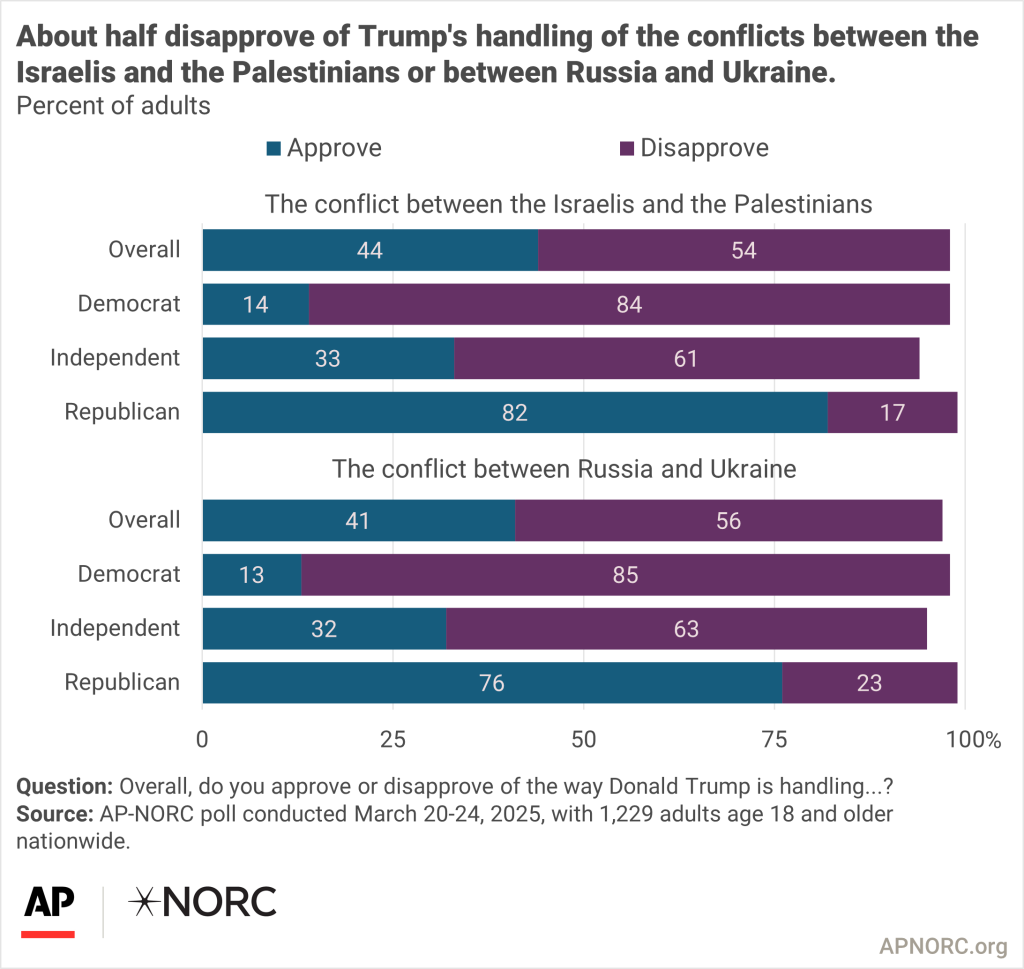
Negotiating a permanent ceasefire between Israel and Hamas and recovering the hostages being held by Hamas are the public’s two biggest priorities regarding the conflict in Gaza. Four in 10 say providing humanitarian aid to Palestinians in Gaza is important, and a quarter say the same about helping Israel’s military.
The public views negotiating a permanent ceasefire as a larger priority than they did a year ago, when 48% viewed it as extremely or very important.
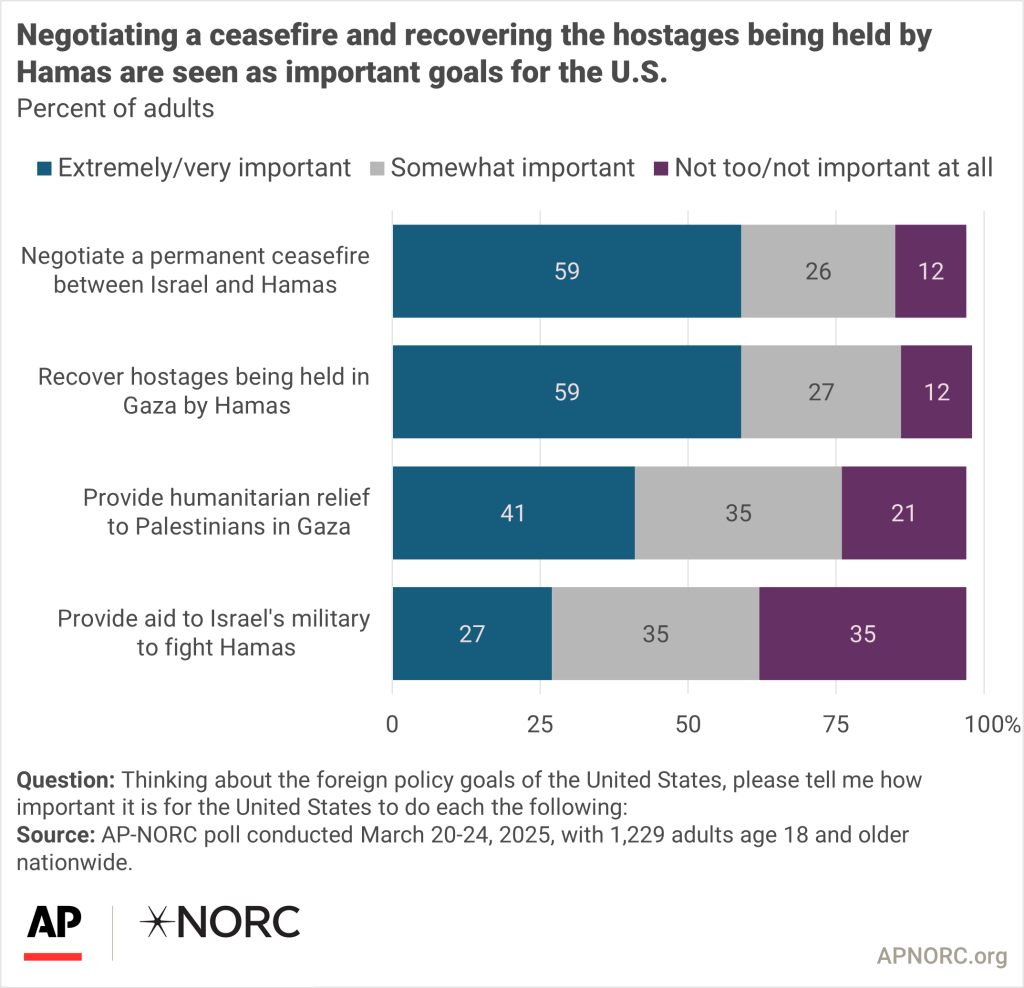
Thirty percent sympathize with neither the Israelis nor the Palestinians while a quarter sympathize with both sides equally. The public is more sympathetic to Israel, with 26% saying they have more sympathy for the Israelis compared with 16% who sympathize more with the Palestinians.
Republicans are more likely than Democrats or independents to be more sympathetic to Israel. Democrats are more likely than Republicans or independents to sympathize more with the Palestinians.
Compared with an AP-NORC poll conducted in August 2023, support for both sides of the conflict has increased. Twenty-six percent currently have more sympathy for the Israelis compared with 21% two years ago. And 16% currently sympathize more with the Palestinians, up from 9% in 2023.
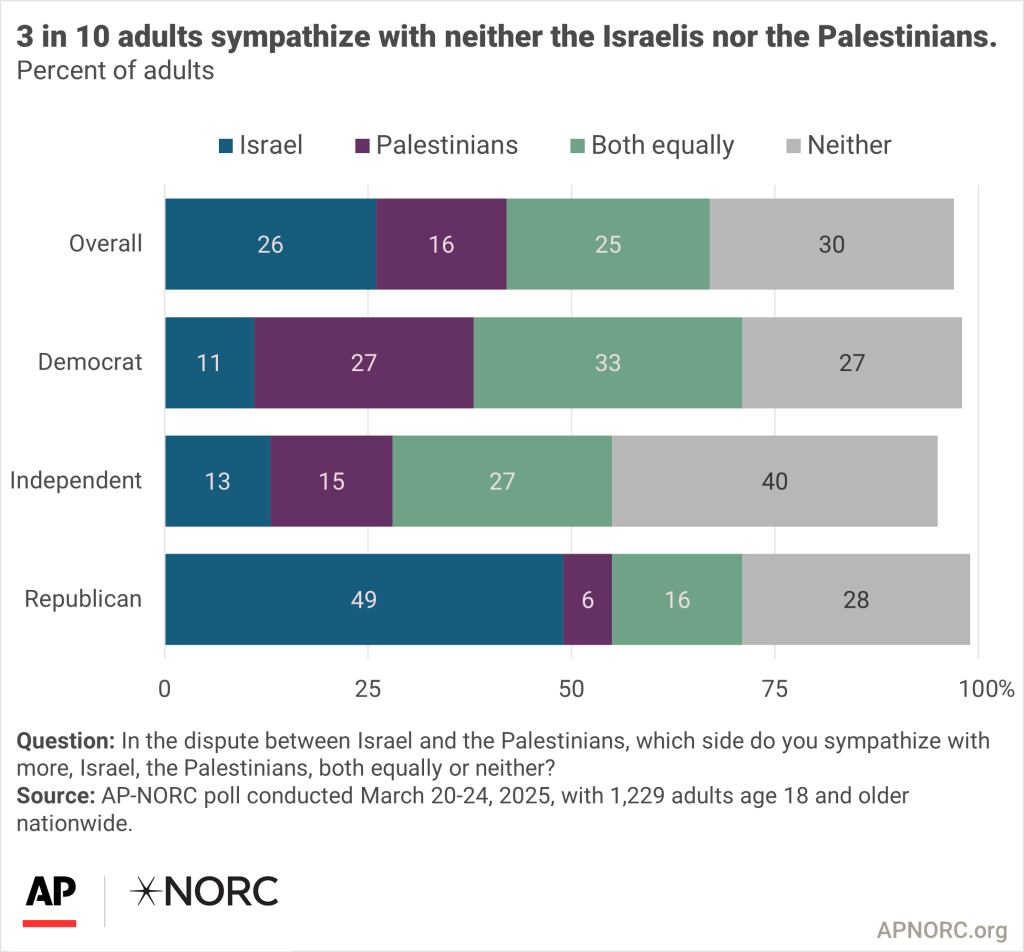
When it comes to the conflict between Russia and Ukraine, 61% view negotiating a permanent ceasefire as important, and half say the same about stopping Russia from gaining more territory in Ukraine. About a third view helping Ukraine regain territory currently occupied by Russia and providing aid to Ukraine’s military as top priorities.
The public is more concerned with negotiating a ceasefire between Russia and Ukraine now than they were a year ago when 49% said it was extremely or very important.
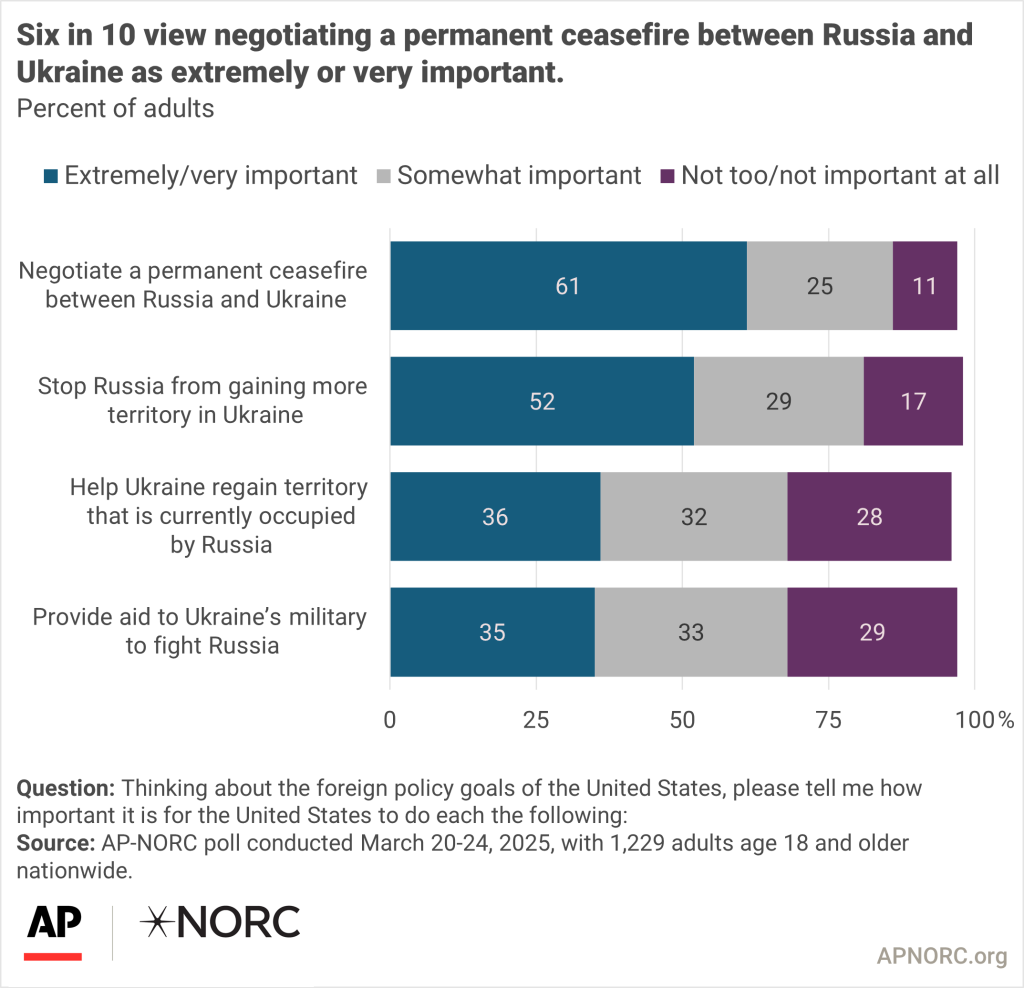
The public is significantly more favorable toward Ukrainian President Volodymyr Zelenskyy than Vladimir Putin, the president of Russia.
Republicans are more likely than Democrats or independents to have an unfavorable view of Zelenskyy. Democrats are more likely than Republicans or independents to have a positive view of Zelenskyy.
The public is more unified in their opinion of Putin, with three-quarters viewing him unfavorably. Still, Democrats are more likely than both Republicans and independents to view him unfavorably.
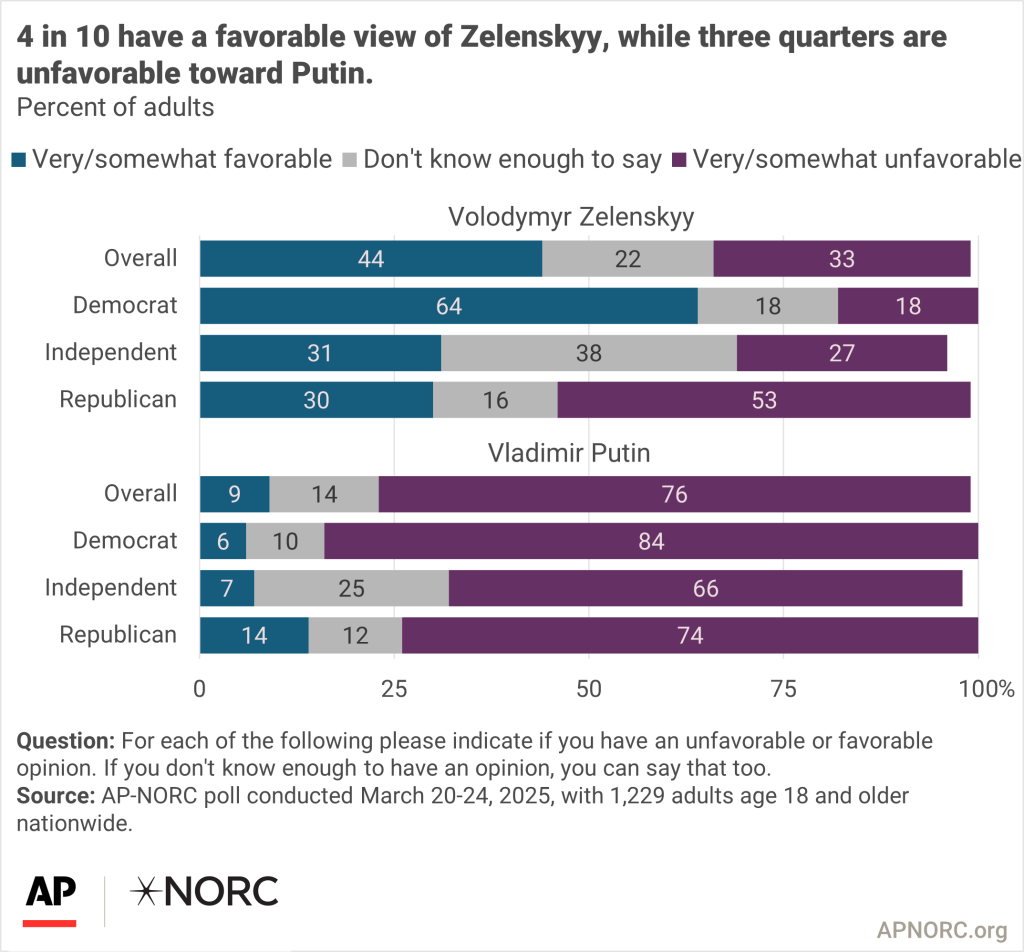
Four in 10 approve of the United States’ current level of involvement in solving the world’s problems while about the same share would prefer that the United States take a less active role. Only a quarter think the United States should take a more active role in solving the world’s problems.
Democrats are more likely than Republicans or independents to feel that the United States should be more involved in solving global issues.
Since Trump’s election to a second term as President, Republicans have become more satisfied with the current level of U.S. involvement in solving the word’s problems. Currently half think the country’s current role in solving global issues is about right, up from 22% last year. Few Republicans want the U.S. to play a more active role globally, down from the 24% last year.
At the same time, Democrats are less confident that the United States is correct in its current level of involvement abroad. Only 23% currently say U.S.’ role in solving global issues is about right, down from 52% last year. Four in 10 Democrats want the U.S. to have a more active role globally, up from 23% last year.
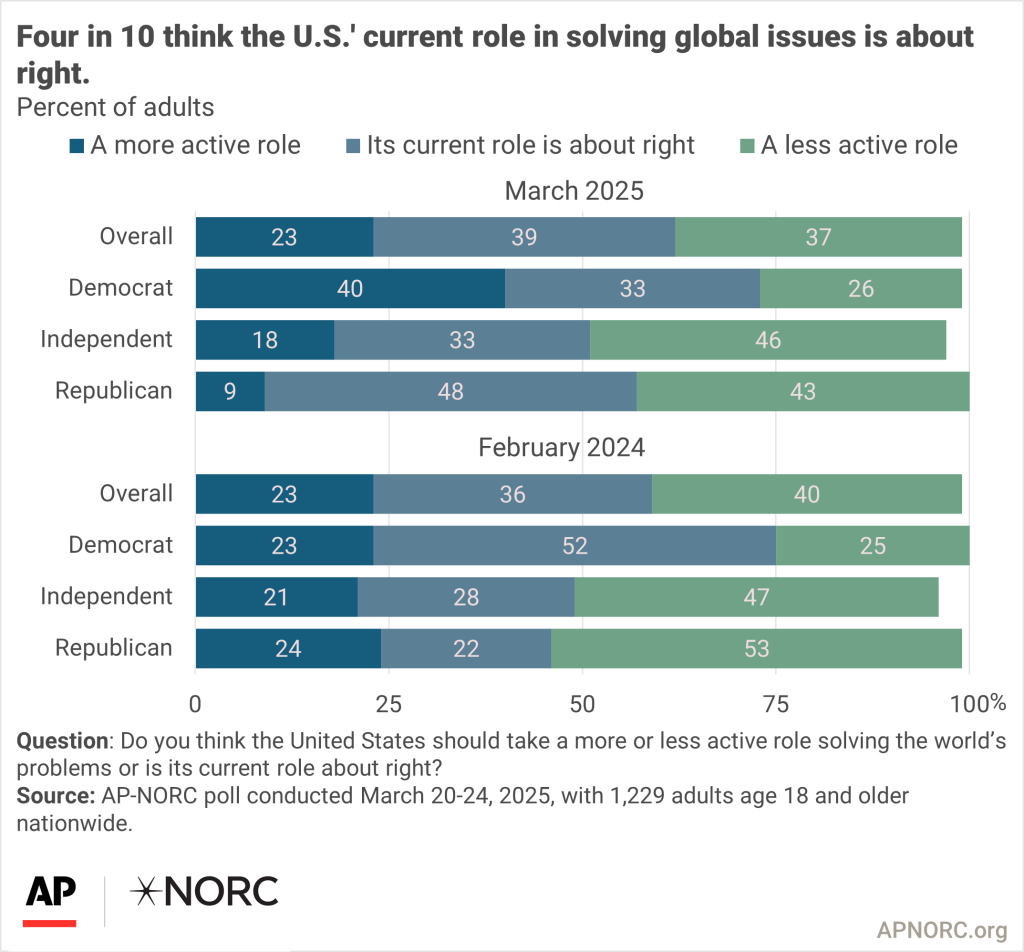
Over half view membership in NATO, the military alliance between the United States, Canada, and many European countries, as a good thing for the country. Thirty one percent say it is neither good nor bad and only 1 in 10 adults think NATO membership is bad for the U.S.
A majority of Democrats feel that membership in NATO is good for the U.S. compared with half of Republicans and 4 in 10 independents. Republicans are more likely than independents or Democrats to think that NATO membership is bad for the U.S.
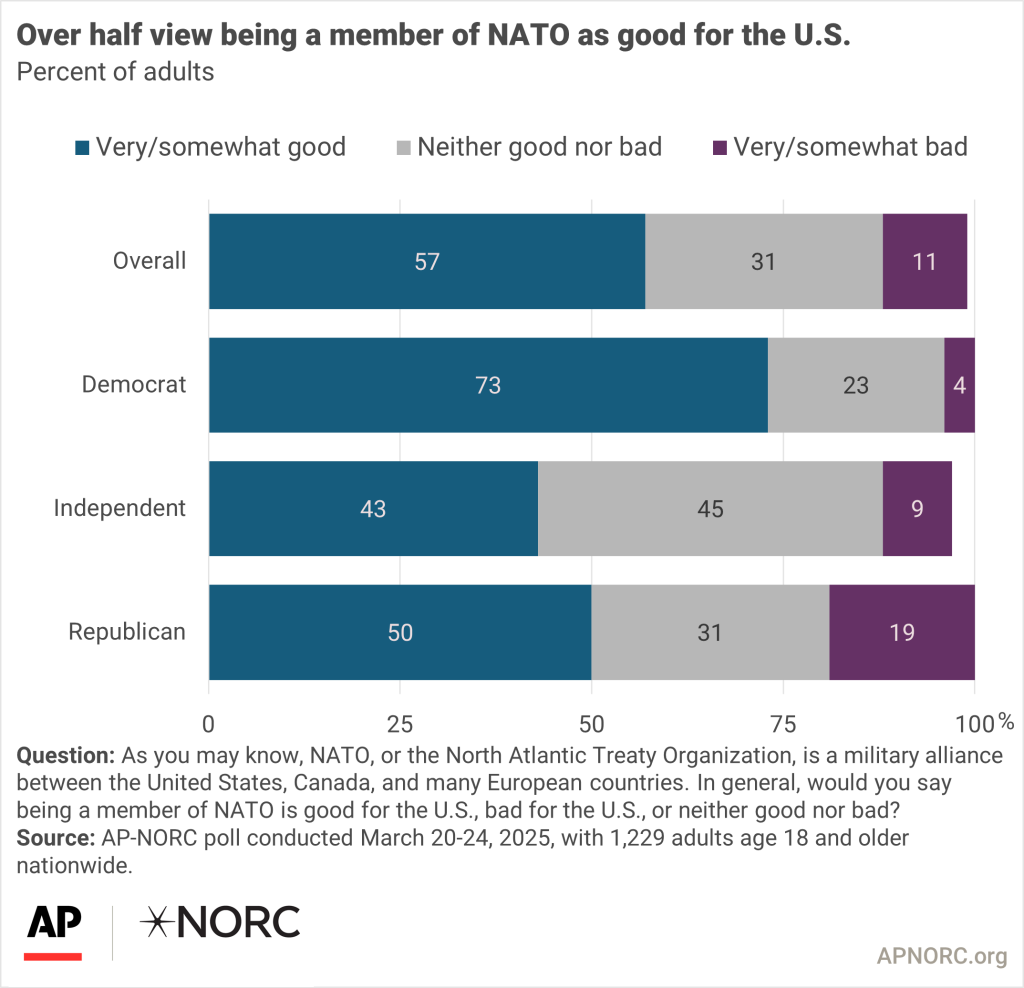
The nationwide poll was conducted March 20-24, 2025 using the AmeriSpeak® Panel, the probability-based panel of NORC at the University of Chicago. Online and telephone interviews using landlines and cell phones were conducted with 1,229 adults. The overall margin of sampling error is +/- 3.9 percentage points.
- Suggested Citation: AP-NORC Center for Public Affairs Research. “Six in 10 say it’s important to negotiate a permanent ceasefire between Israel and Hamas and between Russia and Ukraine” (February 2025). https://apnorc.org/projects/six-in-10-say-its-important-to-negotiate-a-permanent-ceasefire-between-israel-and-hamas-and-between-russia-and-ukraine/







